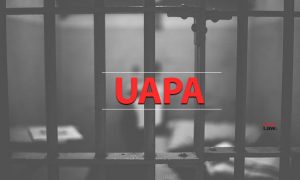Unlawful Activities (Prevention) Act (UAPA):

The death of Father Stan Swamy, a Jesuit priest and tribal rights activist, while in judicial custody, has brought the stringent provisions of Unlawful Activities (Prevention) Act (UAPA) into the focus.
- UAPA is the India’s main anti-terrorism legislation, but the law makes it more difficult to obtain bail.
- This difficulty in obtaining bail is being seen as one of the principal reasons for Fr. Swamy’s death as a prisoner in a hospital and compromises constitutional liberties.
- In the mid-1960s, in order to curb the various secession movements, the Government of India considered enacting a stringent law.
- In March 1967, a peasant uprising in Naxalbari imparted a sense of urgency.
- On 17th June, 1966, the President had promulgated the Unlawful Activities (Prevention) Ordinance.
- The ordinance intended to “provide for the more effective prevention of unlawful activities of individuals and associations”.
- After initial resistance from the Parliament (owing to its stringent nature), the Unlawful Activities (Prevention) Act was passed in 1967.
- The Act provided for declaring an association or a body of individuals “unlawful” if they indulged in any activity that envisages secession or questions or disclaims the country’s sovereignty and territorial integrity.
- Prior to the UAPA’s enactment, associations were being declared unlawful under the Criminal Law (Amendment) Act, 1952.
- However, the Supreme Court held that the provision on bans was unlawful because there was no judicial mechanism to scrutinise the validity of any ban.
- Therefore, the UAPA included provisions for a Tribunal which has to confirm within six months the notification declaring an outfit unlawful.
- After the Prevention of Terrorism Act (POTA), 2002, was repealed, the UAPA was expanded to include what would have been terrorist acts in earlier laws.
Current Status of the Act:
- In its present form, the UAPA has been amended in 2004 and 2013, to expand its scope.
- Expanded Scope of Law:
- Punishment for terrorist acts and activities,
- Acts threatening the country’s security, including its economic security (a term that covers fiscal and monetary security, food, livelihood, energy ecological and environmental security),
- Provisions to prevent the use of funds for terrorist purposes, including money.
- The ban on organisations was initially for two years, but from 2013, the period of proscription has been extended to five years.
- Further, the amendments aim to give effect to various anti-terrorism resolutions of the United Nations Security Council and requirements of the Financial Action Task Force.
- In 2019, the Act was amended to empower the government to designate individuals as terrorists.




